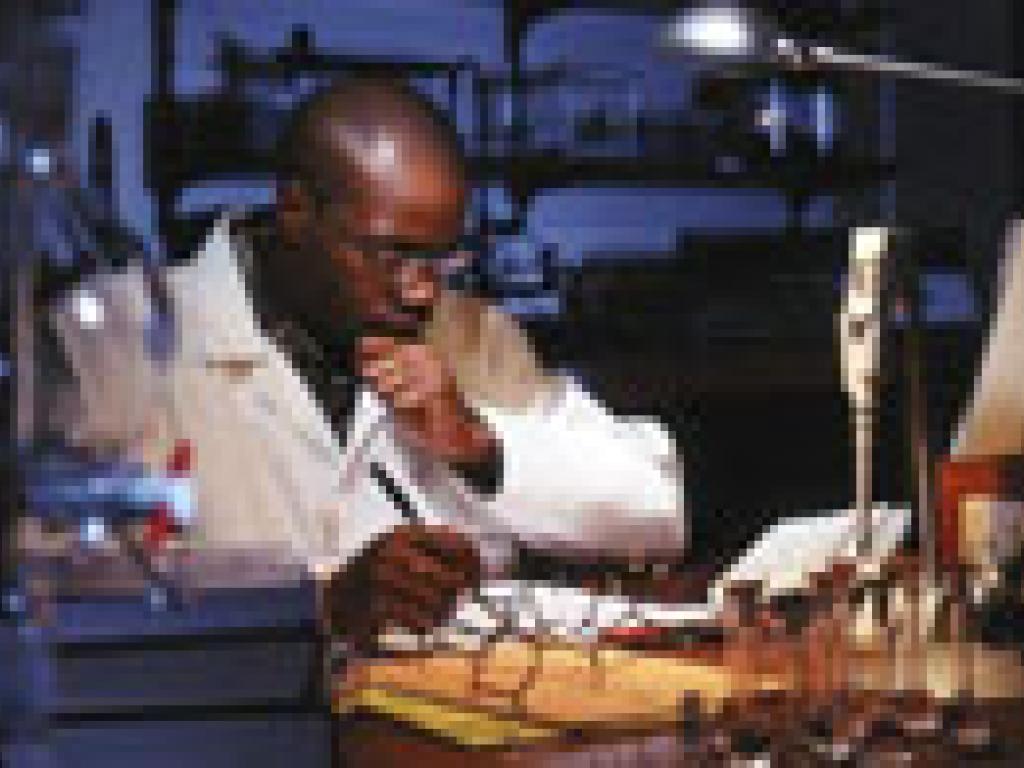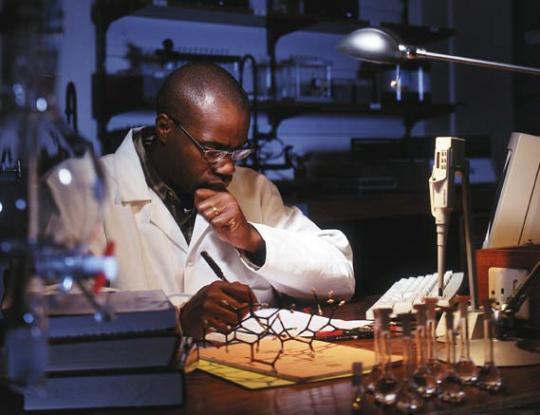South Africa Research Chair in Drug Discovery and Founder of H3D, Shares His Experience

Kelly didn’t have the easiest start to his academic career. After attending three different primary schools, he had to retake his final examinations in order to attend secondary school in Kasama, the capital of the Northern Province of Zambia. At the end of school, he was unsuccessful in his application to study accounting at university and was forced to take a step back and reconsider his options. In this time, Kelly remembered his fascination with chemical reactions and colour changes at school and decided to study chemistry instead.

During his undergraduate studies at the University of Zambia (UNZA), Kelly’s interest in chemistry continued to grow. He enjoyed the logic of organic chemistry and the way that synthetic chemistry can be used to create new molecules. This passion led Kelly to complete a PhD in synthetic organic chemistry at the University of Cambridge, England. He followed this with postdoctoral research at the University of Liverpool, England, and the Scripps Research Institute, USA. He then moved to South Africa to take up an appointment as a lecturer at the University of Cape Town (UCT) where he rose through the ranks to become a professor of organic chemistry. Despite being successful in these endeavours, Kelly admits that he faced challenges along the way: “At UNZA, we had limited infrastructure and resources so we didn’t get much exposure to practical chemistry techniques and equipment. As a result, I didn’t feel adequately prepared for my postgraduate research studies.”
Africa needs science, not aid
Throughout his career, Kelly has been inspired by the use of science to support development. In 2010, he founded H3D – a centre for drug discovery which aims to bridge the gap between basic and clinical studies. He explains, “H3D is the first of its kind in Africa. It trains a new generation of African scientists with key skills and competencies in the relevant areas of drug discovery.” In addition to this, Kelly is the founding director of the South African Medical Research Council Drug Discovery and Development Research Unit at UCT. The unit specialises in the use of innovative drug discovery tools to develop potential medicines for the treatment of endemic African diseases.
Kelly also holds the position of South Africa Research Chair in Drug Discovery. In this, he plays a key part in building capacity by encouraging the integration of various disciplines in the development of new medicines. Although he recognises that Africa’s efforts in this area have, in the past, been “hampered by lack of expertise and infrastructure”, Kelly wants to highlight the impact that Africa can have:
“I want to debunk the myth and challenge stereotypical views that Africa cannot be a source of health innovation. There is capacity, albeit limited, in Africa to innovate and for Africans to lead innovation and use the power of scientific research to discover new medicines for the benefit of humanity. Africa is not just a continent where others can come and do clinical trials.”
The power of collaboration
Kelly has a keen interest in multi-disciplinary research and sees collaboration as crucial for addressing scientific challenges. As an example of this, he draws upon a malaria drug discovery project that involves researchers in the fields of medicinal chemistry, biology and pharmacology. The project was led by H3D on African soil but the team worked in collaboration with institutions in Switzerland (Medicines for Malaria Venture and Swiss Tropical and Public Health Institute), India (Syngene) and Australia (Monash University).
“We are all created to depend on each other for common good and there is so much we can learn from each other. Multi-disciplinary research offers the best opportunity to expose students and future scientists to the best possible frontiers in science.”
Promoting diversity
Kelly believes that more can be done to promote diversity in science and technology by providing opportunities to minority groups and allowing others to be inspired and encouraged by them. He emphasises the need for a deliberate effort to nurture and support talent within minority groups.
Finally, Kelly advises others to make the most of their opportunities and use the challenges they face as a source of motivation.
“There are no formulas for success. Don’t conform and don’t let other people define success for you – you will always have critics.”
Words by Florence Greatrix
Images courtesy of Kelly Chibale
Published October 2015
